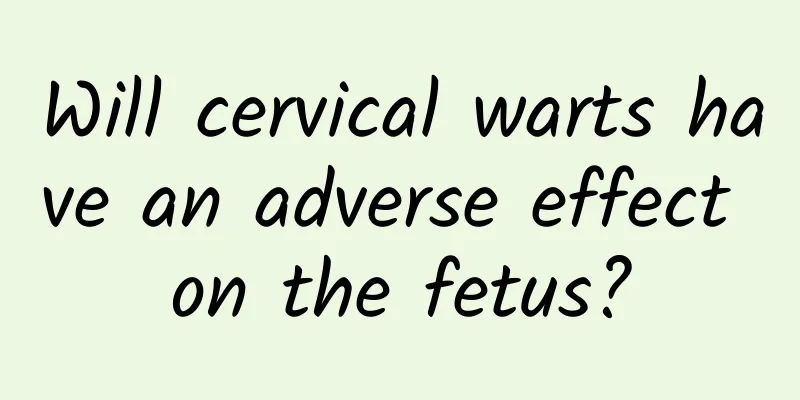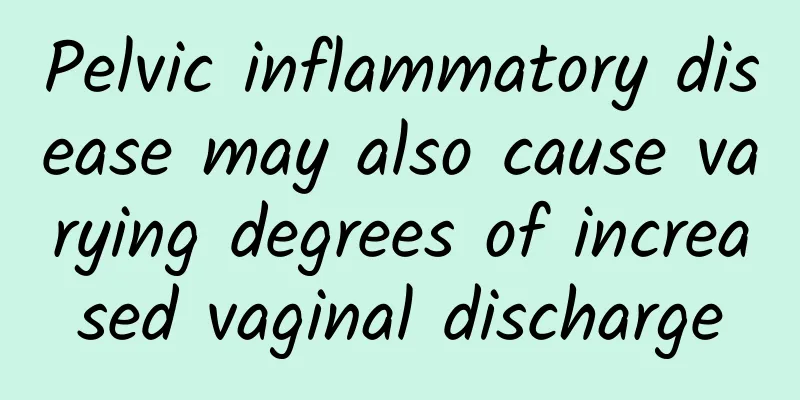Will cervical warts have an adverse effect on the fetus?

|
Once you are infected with cervical warts, you should try to prevent them in terms of diet and hygiene, and do a good job of use and disinfection. It is recommended that you refrain from sexual intercourse during this period to avoid cross-infection. It is also recommended that you refrain from using Chinese and Western medicines, as they will affect the fetus. It is recommended that the fetus be infected through the birth canal of cervical warts. When giving birth, you should choose a cesarean section. If the situation is serious, you should receive treatment in the hospital and avoid strenuous exercise. So how to treat cervical warts in pregnant women? What should you pay attention to in order to recover from the disease? 1. If you are infected with cervical warts during pregnancy, you should first use physical methods such as laser to control the clinical symptoms, and then receive thorough treatment after the baby is born. You cannot use medication now to avoid affecting the fetus. It is recommended that the fetus be infected through the birth canal with cervical warts, and you choose a cesarean section during delivery. 2. The treatment of cervical warts in pregnant women is sometimes complicated, and clinically, it requires consultation between obstetricians and gynecologists and venereal disease physicians. Cervical warts that appear during and after pregnancy should be actively treated. Since the mother's genitals become congested and softened after pregnancy and certain drugs will affect the fetus, a combination of physical therapy and drug therapy can be used for pregnant women, and the treatment plan can be selected according to the location, size, and number of warts. 3. There is a problem of recurrence after treatment of cervical warts. Recurrence most often occurs within 3 months after treatment. Generally speaking, as time goes by, the patient's contamination decreases and the possibility of recurrence also decreases. If there is no recurrence one year after treatment, its infectiousness and possibility of recurrence are extremely small. Therefore, young women who have not had a recurrence for more than one year after treatment can consider pregnancy, but after pregnancy, they should have regular prenatal examinations and pay attention to the cleanliness of the urogenital tract. |
<<: What are the effects of cervical warts on pregnancy?
>>: Can I get pregnant if I have cervical warts?
Recommend
What are the differential diagnoses for adnexitis?
Adnexitis is a female disease, and adnexitis is a...
Detailed discussion on preventive measures for cervical erosion
Cervical erosion brings great pain to women. Whil...
Is chronic cervicitis serious?
Chronic cervicitis is generally not serious. Chro...
How to prevent premature menopause
How to prevent premature amenorrhea? Premature am...
Can Chinese medicine cure the root of female cervical erosion? Precautions for Chinese medicine to treat cervical erosion
For gynecological diseases such as cervical erosi...
Psychology of Weight Loss: 3 Dietary Attitudes You Should Avoid
When you are exhausted, you just want to eat some...
What are the benefits of foot bathing for the uterus? Promote blood circulation
Persisting in foot soaking is very beneficial to ...
Can I have sex after physical treatment for cervical erosion?
Sexual intercourse means sexual life. Cervical er...
What are the details of precautions after abortion?
When it comes to abortion surgery, I believe ever...
Olive oil, linseed oil, perilla oil, don’t make mistakes when cooking and preserving them! Nutritionists reveal 4 tips to prevent good oil from turning into bad oil
How should we use flaxseed oil, perilla oil and o...
What to do about edema-type obesity? Drink Poria cocos, tangerine peel and coix seed tea to lose weight
As autumn approaches, people feel lazy and don’t ...
Be careful of the damage caused to your body by abortion!
What are the main damages of abortion? There are ...
What should I do if my menstruation comes early after uterine fibroid surgery? Will uterine fibroids recur after surgery?
Uterine fibroids are common benign tumors in gyne...
Can I still have sex if I have cervical erosion? What are the key points of nursing for cervical erosion?
Miss Jin has always been healthy. After getting m...
Which hospitals are better for treating threatened abortion?
Being able to give birth to a baby smoothly is th...









